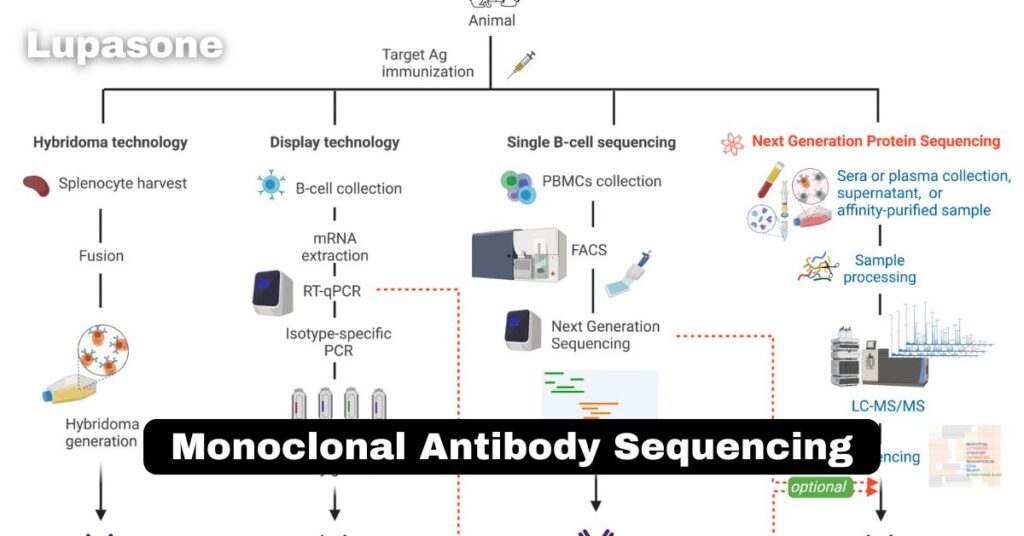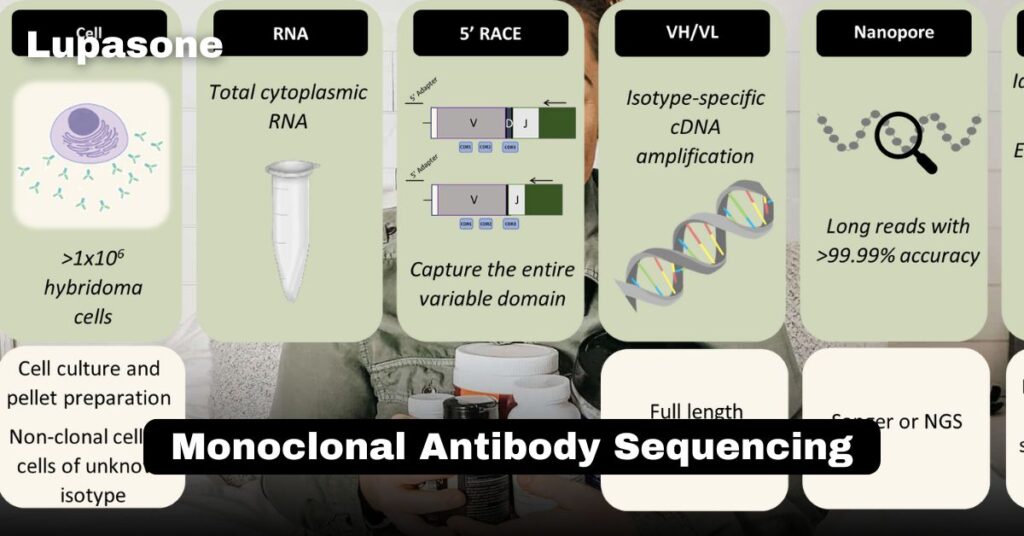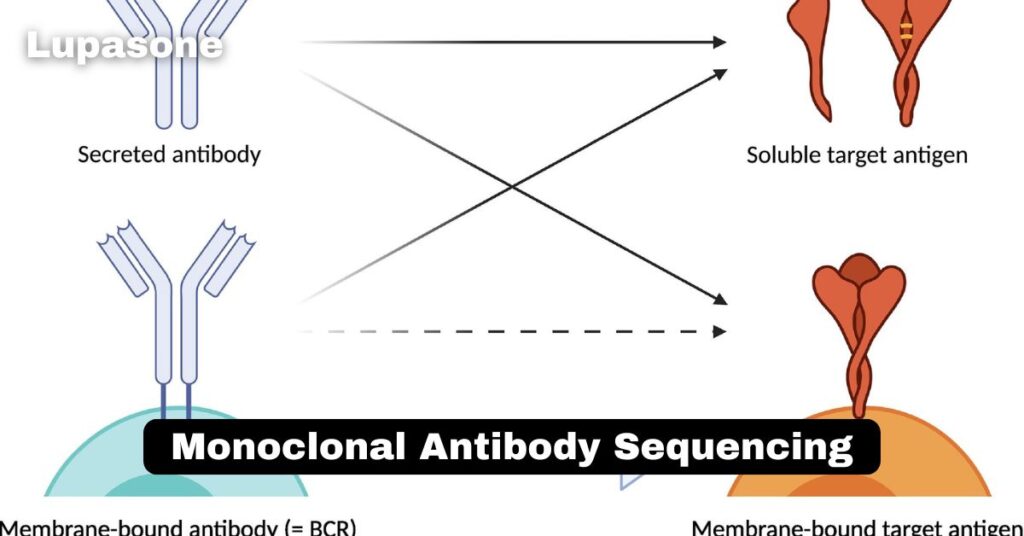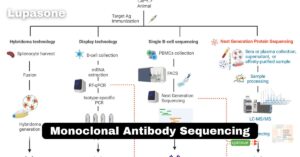
Montana, a state known for its vast landscapes and outdoor beauty, is also making strides in the healthcare sector. One area that has seen a surge in interest is Monoclonal Antibody Sequencing. This cutting-edge technology has the potential to revolutionize disease diagnosis and treatment, and its growing popularity in Montana is a testament to the state’s commitment to medical advancements.
Contents
- 1 Understanding Monoclonal Antibody Sequencing: A Medical Breakthrough
- 2 Potential Factors Driving Increased Interest
- 3 A Game-Changer in Healthcare
- 4 Challenges and Limitations
- 5 Frequently Asked Questions
- 5.1 What is monoclonal antibody sequencing used for?
- 5.2 How accurate is monoclonal antibody sequencing?
- 5.3 Is monoclonal antibody sequencing available in Montana?
- 5.4 What are the costs associated with monoclonal antibody sequencing?
- 5.5 Are there any risks or side effects associated with monoclonal antibody sequencing?
- 6 Conclusion
Understanding Monoclonal Antibody Sequencing: A Medical Breakthrough
Monoclonal antibody sequencing is a powerful technique used to analyze the genetic makeup of antibodies produced by a single clone of immune cells. These antibodies are highly specific proteins that can target and bind to specific molecules, making them invaluable tools in medical research and diagnosis.
The importance of monoclonal antibody sequencing cannot be overstated. By analyzing the genetic sequence of these antibodies, scientists can:
- Identify new disease targets: Discover specific molecules or proteins involved in various diseases, leading to the development of more targeted treatments.
- Develop novel therapeutics: Create highly specific monoclonal antibodies that can be used as therapeutic agents to treat a wide range of diseases, including cancers, autoimmune disorders, and infectious diseases.
- Improve disease diagnosis: Develop more accurate and sensitive diagnostic tests based on monoclonal antibody technology.
- Study immune system responses: Gain a better understanding of the immune system’s response to diseases and develop more effective vaccines and immunotherapies.
It has the potential to revolutionize healthcare by providing valuable insights into disease mechanisms and enabling the development of innovative treatments.
Potential Factors Driving Increased Interest

While specific data on the reasons for increased searches for monoclonal antibody sequencing in Montana may be limited, several factors could contribute to this growing interest:
Health Concerns:
- Disease Outbreaks: Montana, like other regions, may have experienced outbreaks of infectious diseases or other health concerns that have led to increased interest in advanced diagnostic and treatment methods.
- Emerging Health Challenges: The state may be facing new or emerging health challenges that can be addressed through monoclonal antibody sequencing technology.
Medical Research Initiatives:
- Research Centers and Institutions: Montana may have research centers or institutions actively engaged in studying monoclonal antibody sequencing and its applications. These initiatives could drive interest and awareness within the state.
- Collaborations and Partnerships: Research collaborations between Montana-based institutions and other organizations involved in monoclonal antibody research could contribute to increased attention and interest.
Accessibility and Availability:
- Expanded Services: The availability of monoclonal antibody sequencing services in Montana may have increased in recent years, making it more accessible to individuals and healthcare providers.
- Public-Private Partnerships: Partnerships between healthcare institutions and private companies could have facilitated the expansion of monoclonal antibody sequencing services in the state.
Public Awareness Campaigns:
- Education and Outreach: Public awareness campaigns or initiatives promoting monoclonal antibody sequencing could have played a role in increasing interest and understanding among the general public.
- Media Coverage: Increased media coverage of monoclonal antibody sequencing and its potential benefits could have raised awareness and driven searches.
It’s important to note that this analysis is based on potential factors and may not capture all the specific reasons for increased interest in monoclonal antibody sequencing in Montana. To gain a more comprehensive understanding, further research and data analysis would be necessary.
A Game-Changer in Healthcare
Monoclonal antibody sequencing offers a multitude of benefits and applications in the field of healthcare. Here’s a closer look at how this innovative technology is making a significant impact:
Medical Diagnosis:
- Early Detection: Monoclonal antibody sequencing can be used to develop highly sensitive diagnostic tests that can detect diseases at earlier stages, when treatment is often more effective.
- Accurate Diagnosis: By analyzing the genetic makeup of antibodies, these tests can provide more accurate and specific diagnoses, leading to more targeted treatments.
- Disease Monitoring: Monoclonal antibody sequencing can be used to monitor disease progression and track the effectiveness of treatment, allowing for adjustments as needed.
Treatment Development:
- Targeted Therapies: Monoclonal antibody sequencing can help identify specific targets for therapeutic intervention, leading to the development of more effective and targeted treatments.
- Drug Discovery: By understanding the immune system’s response to diseases, researchers can develop new drugs that mimic or enhance the actions of beneficial antibodies.
- Personalized Medicine: Monoclonal antibody sequencing can contribute to personalized medicine by tailoring treatments to the specific genetic makeup of individual patients.
Personalized Medicine:
- Precision Medicine: It can be used to identify genetic markers that predict how individuals will respond to different treatments, enabling personalized medicine approaches.
- Tailored Therapies: By understanding an individual’s genetic makeup, healthcare providers can select the most effective treatment options, potentially improving outcomes and reducing side effects.
Monoclonal antibody sequencing has the potential to revolutionize healthcare by providing valuable insights into disease mechanisms, enabling early diagnosis, and facilitating the development of more effective treatments. As research progresses, we can expect to see even greater advancements in this field.
Challenges and Limitations

While it offers significant benefits, it’s important to acknowledge the challenges and limitations associated with this technology:
Technical Challenges:
- Complexity: It can be a complex process, requiring specialized equipment, expertise, and bioinformatics tools for data analysis.
- Data Analysis: Interpreting the vast amount of data generated by monoclonal antibody sequencing can be time-consuming and requires specialized knowledge.
- Cost: The cost of monoclonal antibody sequencing can be high, limiting its accessibility in some cases.
Accessibility and Cost:
- Cost Barriers: The cost of it can be a barrier for its widespread use, especially in resource-limited settings.
- Insurance Coverage: Insurance coverage for it may vary, and some individuals may face out-of-pocket costs.
Ethical Considerations:
- Privacy and Data Security: The collection and analysis of genetic data raise concerns about privacy and data security. Ensuring the protection of patient data is crucial.
- Equity and Access: Ensuring equitable access to monoclonal antibody sequencing is important to avoid disparities in healthcare outcomes.
Addressing these challenges and limitations will be crucial for realizing the full potential of monoclonal antibody sequencing and making it accessible to a wider population.
Frequently Asked Questions
What is monoclonal antibody sequencing used for?
It is a powerful technique used in various medical applications, including:
- Disease diagnosis: Detecting and diagnosing diseases at an early stage.
- Treatment development: Developing new and targeted therapies for various diseases.
- Personalized medicine: Tailoring treatments to individual patients based on their genetic makeup.
- Research: Studying the immune system and understanding disease mechanisms.
How accurate is monoclonal antibody sequencing?
It is considered a highly accurate and reliable technique. It can provide precise and sensitive results, aiding in the diagnosis and treatment of various diseases.
Is monoclonal antibody sequencing available in Montana?
The availability of monoclonal antibody sequencing services may vary depending on the specific location within Montana. It’s recommended to contact local healthcare providers or research institutions to determine if these services are offered in your area.
What are the costs associated with monoclonal antibody sequencing?
The cost of monoclonal antibody sequencing can vary depending on factors such as the specific test, the laboratory performing the analysis, and insurance coverage. It’s important to consult with your healthcare provider or insurance provider for accurate cost information.
Are there any risks or side effects associated with monoclonal antibody sequencing?
Monoclonal antibody sequencing itself does not involve any direct risks or side effects. However, it may be used in conjunction with other medical procedures or tests that could have potential risks or side effects. It’s essential to discuss any concerns with your healthcare provider before undergoing any medical procedures.
By understanding these frequently asked questions, you can gain a better understanding of monoclonal antibody sequencing and its potential applications in healthcare.
Conclusion
Throughout this article, we’ve explored the growing interest in monoclonal antibody sequencing in Montana. We’ve discussed its applications in medical diagnosis, treatment development, and personalized medicine.
Key Takeaways:
- It is a powerful tool with significant potential in healthcare.
- Increased interest in Montana may be driven by factors such as health concerns, research initiatives, and improved accessibility.
- While there are challenges and limitations, advancements in technology and research are likely to overcome these obstacles.
Final Thoughts:
As it’s technology continues to evolve, we can expect to see even greater advancements in its applications. Montana, with its growing focus on healthcare and medical research, is well-positioned to benefit from these innovations.
A Call to Action:
If you’re interested in learning more about monoclonal antibody sequencing and its potential impact on healthcare in Montana, we encourage you to:
- Stay informed: Follow news and research updates related to it and its applications.
- Support local initiatives: Encourage and support research projects and initiatives focused on advancing monoclonal antibody sequencing in Montana.
- Discuss with healthcare providers: Talk to your healthcare providers about the potential benefits of it for your specific needs.
By staying informed and engaged, you can contribute to the advancement of this promising technology and its potential to improve healthcare outcomes in Montana.
Visit home for more articles



